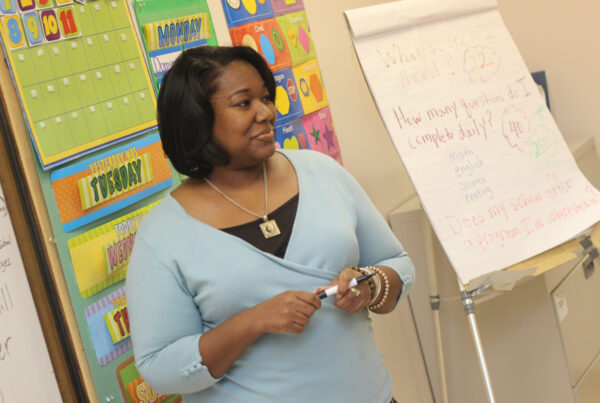One of the most important national conversations currently taking place centers on the need for equity in education. For far too long, we have neglected to create institutions and experiences within those institutions that garner equitable access and learning outcomes for every student. Much of this discussion centers on the quality of teachers and teacher effectiveness, distribution of resources, and facilities that support the kind of learning necessary for all children. Very little of the discussion is about families and how engagement can bring about the equity we so desperately seek.
I have a friend in England, Simon Feasey, who I have actually never met in person. But, through blogs, chats, e-mails and Twitter, we’ve become virtual pen pals and also have come to understand that we are kindred spirits, two people passionate about the same topic: family and community engagement. He writes a wonderful blog entitled “The Road Less Travelled By.” I encourage you to read it. His blog titles are both engaging and mysterious enough that you really need to read the blog to figure out where the title came from. (My title today is a meager attempt to imitate my friend’s genius in this realm. Sadly, I have a long way to go.)
Recently, Simon wrote a blog post about inequities in the engagement of families as it relates to social and economic class and cultural capital. He used the inequities of student discipline as one example of this ongoing inequity. He wrote, in part:
“One of the roots of inequality is inaccessibility of school and community resources for some families and their failure to participate in ways that teachers expect because they lack the social and cultural capital of middle-class families.” (See the entire blog here.)
To engage every family with school means that we understand that not every family we serve has the same means, the same capital, to engage and support their children. If we truly value engagement, we then create systems to supply the equity necessary so that all children are successful and that their families possess the efficacy necessary to nurture their children outside of school. In other words, a seismic cultural shift must occur.
Any good leader knows the power of organizational culture is the true navigator of organizational performance. Creating a culture that is inclusive of every family is an easy statement to write, but far more complicated a task to embed in academic organization – especially since many schools remain bastions of a barriered culture of another era. The implicit biases which exist in all of our schools is well-documented and, unfortunately, manifest themselves as directives, rules, procedures and practices, which lead to disproportionality in discipline, purposeful unevenness in access to academic programs, and continually lopsided student learning outcomes.
The answer to this complicated issue? Well, I am not sure that I have the entire answer, but I think I have identified some of the ingredients. First, we must accept the notion that every family wants their children to be successful and exceed them in their quality of life. Second, we must adopt the philosophy that we are committed – truly committed – to engaging every family, not just the easy ones, and that we reject the long-standing practice of engaging the already engaged. Last, I think we need courageous leaders. Leaders who will punch through traditional school cultures, who have the vision for what things could be and the tenacity to actually get it done.
Simon’s Blog: theroadlesstravelledby.com



